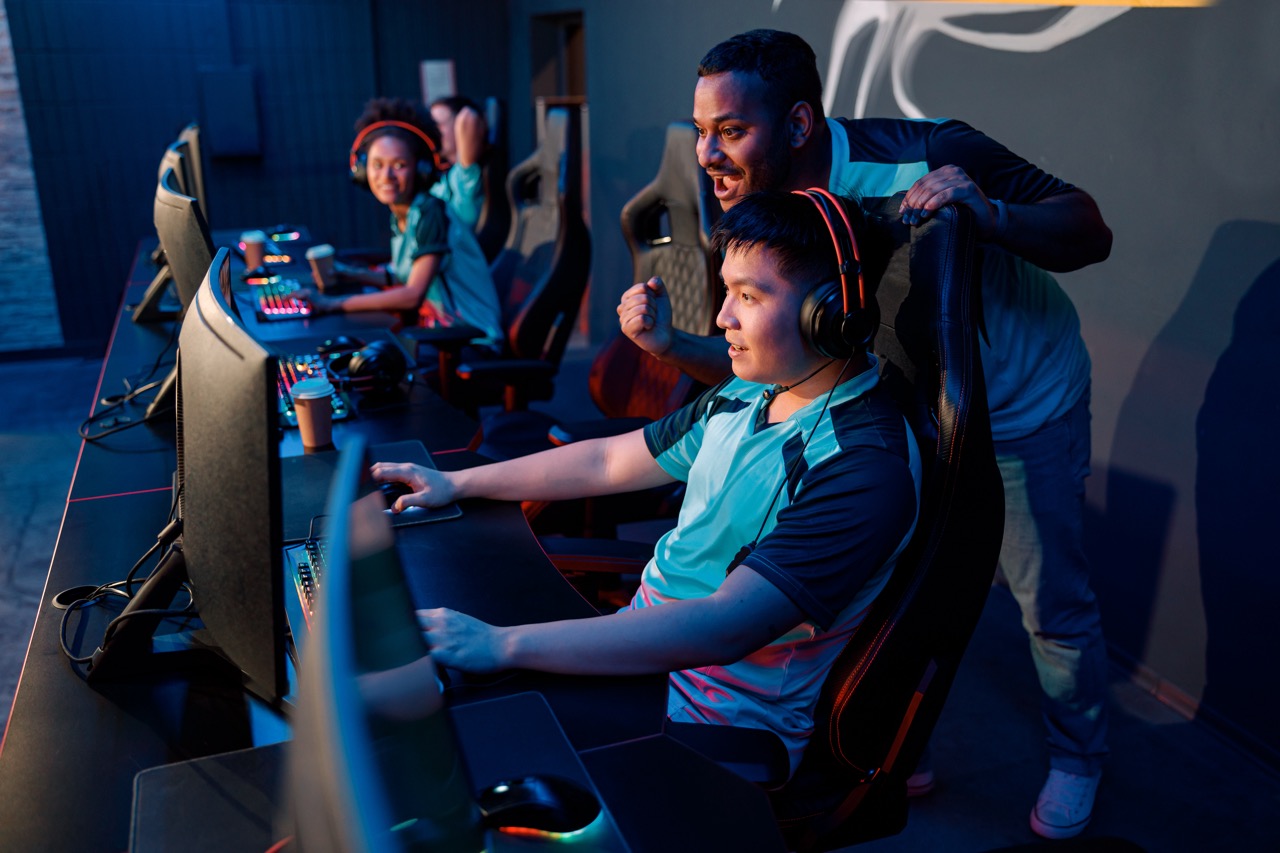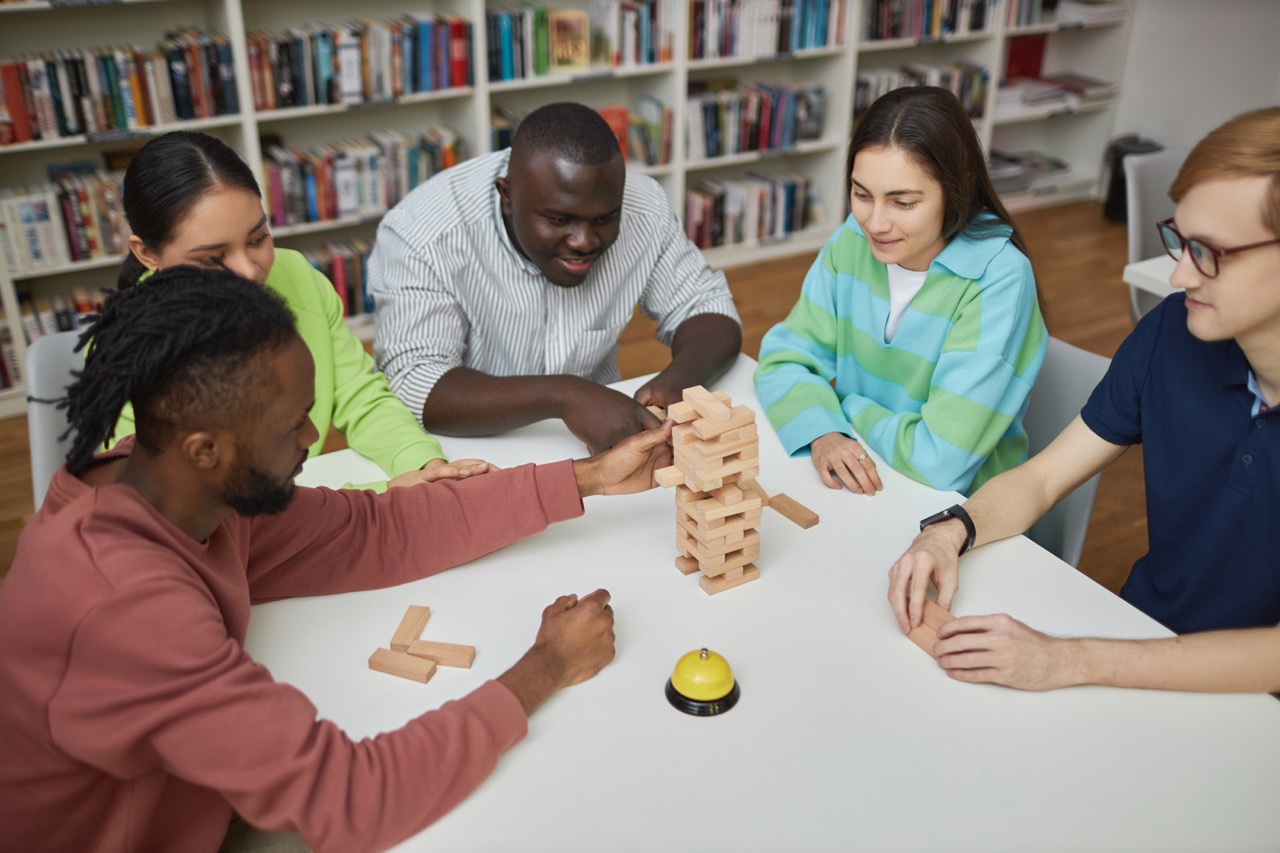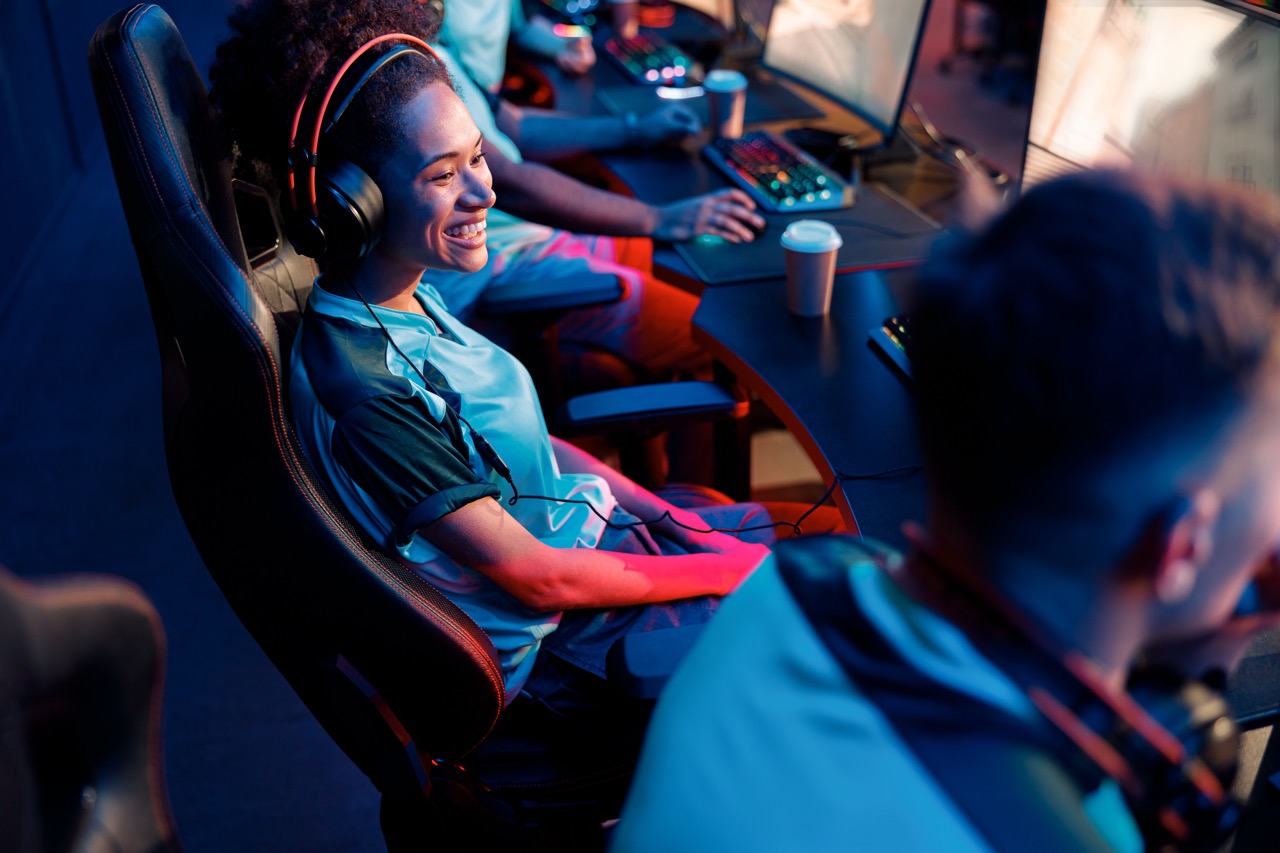Gaming has been a popular pastime for decades, captivating millions around the globe. While many view it as mere entertainment, recent studies have shed light on the surprising ways in which gaming can enhance cognitive skills. From sharpening our problem-solving abilities to boosting memory and attention span, video games are proving to be more than just a fun escape from reality. In this article, we’ll explore how gaming can level up your brain in various aspects, transforming what many might consider a hobby into a powerful tool for self-improvement.
1. Leveling Up Your Brain: The Power of Gaming
When you think of gaming, what comes to mind? For many, it’s about epic adventures and digital battles. However, at its core, gaming is an intricate mental workout. Engaging in gameplay often requires players to think critically, strategize, and adjust their tactics on the fly. This constant mental gymnastics not only keeps the brain engaged but also fosters neural connections that can strengthen cognitive functions.
Moreover, various genres of games target different skills. Puzzle games, for instance, challenge players to think logically and develop strategies for problem-solving. Action games, on the other hand, often improve reaction time and hand-eye coordination. With such a broad spectrum of games available, players can choose what best suits their interests while also working on specific cognitive skills.
Interestingly, research has indicated that the cognitive benefits of gaming extend beyond the screen. The skills developed in virtual worlds can translate to real-life situations. Players often find themselves applying problem-solving techniques or strategic thinking learned in games to everyday challenges, whether at work, school, or home.
Lastly, the immersive nature of gaming creates a unique environment where players are naturally motivated to learn and improve. The sense of achievement that comes from completing a challenging level or mastering a difficult skill can boost confidence and encourage further exploration, making the brain’s development feel like an exciting adventure rather than a chore.
2. How Video Games Boost Problem-Solving Skills
Problem-solving is a crucial skill in today’s complex world, and video games provide a rich training ground for honing this ability. Many games present players with a series of challenges that require quick thinking and effective decision-making. Whether it’s puzzles in a role-playing game (RPG) or escaping tricky situations in a first-person shooter, every scenario demands players to analyze their options and choose a course of action.
One of the standout features of gaming is its capacity to create environments where players can experiment with different strategies without fear of real-world consequences. If one approach doesn’t work, players can easily reset and try something new. This flexibility not only enhances critical thinking but also fosters resilience as players learn to deal with setbacks and revise their plans accordingly.
Moreover, certain games emphasize lateral thinking, where players must think outside the box to progress. Titles like "Portal" challenge players to manipulate the environment in unconventional ways, teaching them to view problems from various angles. This kind of thinking can lead to innovative solutions in day-to-day life, proving that the skills acquired in gaming can be incredibly valuable.
Finally, many multiplayer games require collaboration to solve challenges. Whether strategizing with teammates in a battle royale or figuring out how to complete objectives in a cooperative puzzle game, players learn to communicate effectively and brainstorm ideas together. This not only enhances problem-solving skills but also cultivates a sense of community and collective intelligence.
3. Memory Mastery: Can Gaming Make You Smarter?
Memory plays a vital role in our cognitive abilities, and gaming can serve as a powerful tool for enhancing it. Many games require players to remember complex storylines, intricate maps, or specific patterns to succeed. This constant demand for retention creates a workout for the brain, encouraging players to strengthen their memory muscles.
Additionally, memory-based games often involve recalling information under pressure, which can enhance not only short-term memory but also long-term retention. For instance, games that require players to remember the locations of hidden items or the sequence of events can improve their ability to absorb and recall information in various contexts, such as academic and work settings.
Studies have shown that certain action games can lead to improvements in working memory, a type of short-term memory that we use to hold and manipulate information. Players often need to keep track of multiple elements—like health, ammunition, and objectives—simultaneously, which can enhance their capacity to juggle tasks in real life.
Moreover, many games incorporate elements of repetition and reinforcement, further solidifying memory retention. The reward systems found in games—like leveling up or unlocking achievements—can create a positive feedback loop that encourages players to engage with the material repeatedly, making it easier to remember when they need to apply it in real-life scenarios.
4. Attention Span: Gaming vs. Distractions of Life
In an age where distractions are everywhere, maintaining focus can be a challenge. Interestingly, video games can help improve attention span in a world full of interruptions. Many games require intense concentration, demanding that players stay focused on tasks for extended periods. This kind of sustained attention can help train the brain to maintain focus in other areas of life.
Some studies suggest that action games, in particular, can enhance the brain’s ability to focus. Players often need to track multiple moving objects simultaneously while making quick decisions, which can improve their overall attentional control. This skill translates well into real-world situations, such as navigating busy environments or multitasking at work.
Furthermore, gaming can also serve as a form of mental exercise that counteracts the negative effects of distractions. By honing the ability to focus on one task, players may find it easier to tune out the noise of an increasingly chaotic world. This could lead to improved productivity and better performance in both academic and professional settings.
However, it’s essential to strike a balance. While gaming can enhance attention and focus, excessive play can lead to overstimulation and a potential decrease in attention span in other activities. Moderation is key to reaping the cognitive benefits while avoiding the pitfalls of screen overload.
5. Teamwork and Strategy: Social Skills from Gaming
Contrary to the stereotype of the solitary gamer, many video games emphasize teamwork and collaboration. Multiplayer online games, in particular, require players to work together toward common goals, fostering social skills that are crucial in both personal and professional contexts. Through these games, players learn to communicate effectively, delegate tasks, and support one another, which can translate well into real-life interactions.
Working together in a gaming environment also teaches players about strategy and compromise. Team members must often negotiate and make collective decisions about how to approach challenges, which cultivates negotiation skills and the ability to consider different perspectives. These experiences can enhance emotional intelligence, an essential skill for navigating social situations.
Moreover, many games require players to build trust with their teammates. In games where collaboration is vital, players learn to rely on one another’s strengths and abilities, fostering a sense of camaraderie. This not only builds relationships within the gaming community but also helps develop a strong sense of belonging, which can translate into improved social skills in real-life settings.
Additionally, the dynamics of online gaming communities can teach players about diversity and inclusion. Engaging with individuals from different backgrounds and cultures fosters cultural sensitivity and understanding, preparing players to navigate a diverse world. This aspect of gaming underscores its potential to enhance not just individual cognitive skills but also social competencies that are invaluable in today’s interconnected society.
6. The Fun Factor: Enjoying Learning Through Play!
One of the most compelling aspects of gaming is the element of fun. When players engage in gaming, they often don’t realize they are developing valuable skills; they’re simply enjoying themselves. This enjoyment can be a powerful motivator for learning, making the process feel less like a chore and more like an adventure.
Games often incorporate challenges that require skill-building, but they do so in a way that feels rewarding and engaging. The satisfaction of completing a level, unlocking new features, or achieving a high score can create a sense of accomplishment that encourages further exploration and learning. This positive reinforcement can lead to a genuine love for learning and self-improvement.
Moreover, gaming can offer safe spaces to make mistakes and learn from them. Players can fail and try again without fear of real-world consequences, which can alleviate the pressure associated with traditional learning environments. This freedom to experiment fosters a growth mindset, where players are encouraged to embrace challenges and view failures as opportunities for growth.
Ultimately, the blend of fun and learning in gaming creates a unique environment that fosters cognitive development. By framing learning as an enjoyable experience, gaming can motivate individuals of all ages to engage with complex subjects, expanding their knowledge and skills in a way that feels effortless and exciting.
In conclusion, gaming is far more than just a source of entertainment; it’s a powerful tool for cognitive enhancement. From sharpening problem-solving abilities to improving memory and attention span, the benefits of gaming are substantial. As we continue to explore the intersection of gaming and learning, it becomes clear that playing video games can be a fun and effective way to sharpen our cognitive skills, develop social abilities, and foster personal growth. So, the next time you pick up a controller, remember: you might just be leveling up your brain in the process!










